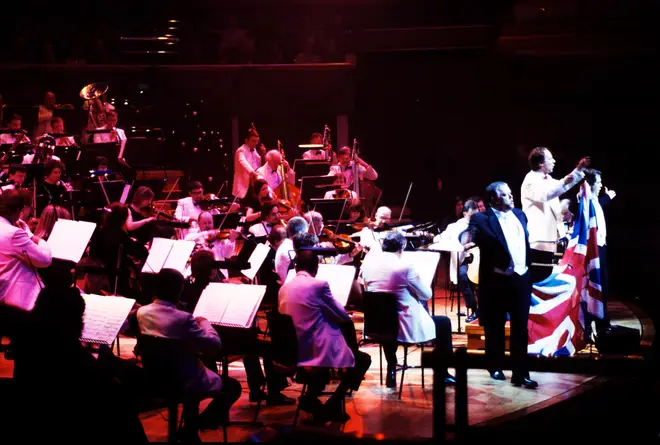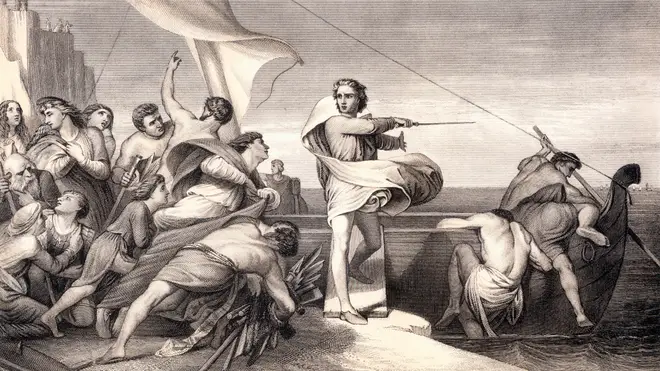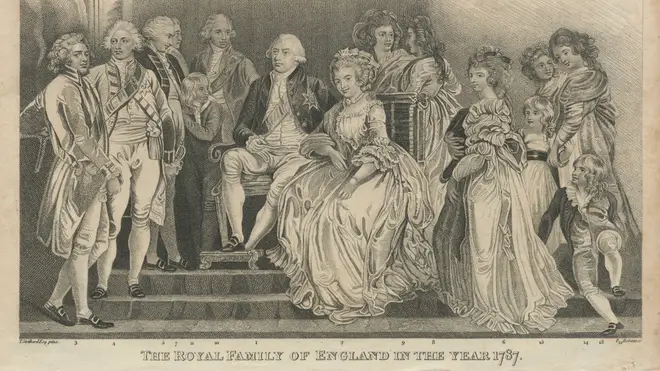On Air Now
Relaxing Evenings with Zeb Soanes 7pm - 10pm
23 January 2024, 10:42

While a popular choice in many British classical concerts, ‘Rule Britannia’ has become controversial due to its associations with slavery and colonialism. Here’s a look at the song’s lyrics, and long history.
‘Rule, Britannia!’ began as a poem, penned by Scottish poets James Thomson and David Mallet.
English composer Thomas Arne took the text and set it to music, originally for the grand finale of his sung stage work Alfred, based on the legend of Alfred the Great, an Anglo-Saxon King who died over 800 years beforehand.
Throughout the last few hundred years of music history, several composers have quoted Arne’s melody, including Beethoven, who used it in ‘Wellington’s Victory’, as well as for a set of variations for piano.
In 1837, Wagner wrote a concert overture based on the theme, while Johann Strauss I quoted the entire song in his 1838 waltz ‘Huldigung der Königin Victoria von Grossbritannien’ (Homage to Queen Victoria of Great Britain). He also uses the British national anthem ‘God Save the King’ at the end of the piece.
‘Rule, Britannia!’ still holds sway in classical concerts today, but its prolific use has been increasingly criticised. Famously featuring the line ‘Britons never, never, never will be slaves’, the song was written in 1740, at a time when Britain was a slave-trading nation.
Read more: What are the lyrics to ‘God Save the King’, Britain’s national anthem?

Rule, Britannia! — HM Royal Marines
Thomas Arne originally composed the music for ‘Rule, Britannia!’ for his stage work Alfred, which premiered on 1 August 1740 at Cliveden House, home to Frederick, the then Prince of Wales. The music was conjured up to celebrate the ascension of Frederick’s grandfather, King George I, and the birthday of the Princess Augusta.
Set in 871, Alfred tells of Alfred the Great, a King who reigned over the Saxons during the years 871 to 899 AD. The work, technically a masque – a popular type of dramatic entertainment among 16th and 17th century English nobility – tells of how Alfred took shelter on the Isle of Athelney, a village in Somerset, following a defeat from the Vikings.
Towards the masque’s finale, Alfred leaves to fight again, and is this time victorious, to the sound of ‘Rule, Britannia!’.
As Alfred says, “Britons, proceed, the subject deep command, awe with your navies ev’ry hostile land”, the chorus replies, ‘Rule, Britannia!’.

Dr Oliver Cox, co-lead of the Oxford University Heritage Network, came across letters in 2012 between two audience members at the 1740 premiere performance of Alfred.
The letters alluded that the music they heard was interpreted by the audience as a rallying cry, with the masque expressing key beliefs which were central to a group of politicians who opposed the monarch at the time, King George II and his Prime Minister, Sir Robert Walpole.
As Prince Frederick had been exiled from the king’s court by his father by 1740, Dr Cox said on his discovery at the time, “This new evidence suggests that Alfred was not just, as previous scholars have suggested, a general comment on kingship, but was in fact a highly specific response to a specific set of political problems that existed in the summer of 1740.
“In many ways, Rule Britannia could be compared to the D-Ream song Things Can Only Get Better which Tony Blair used as a soundtrack to Labour’s election victory in 1997.”
Read more: What are the lyrics to ‘Land of Hope and Glory’ and what do they mean?

Rule, Britannia! Britannia, rule the waves!
Britons never, never, never will be slaves.
When Britain first, at heaven's command,
Arose from out the azure main,
This was the charter of the land,
And Guardian Angels sang this strain:
(Chorus)
The nations not so blest as thee
Must, in their turn, to tyrants fall,
While thou shalt flourish great and free:
The dread and envy of them all.
(Chorus)
Still more majestic shalt thou rise,
More dreadful from each foreign stroke,
As the loud blast that tears the skies
Serves but to root thy native oak.
(Chorus)
Thee haughty tyrants ne'er shall tame;
All their attempts to bend thee down
Will but arouse thy generous flame,
But work their woe and thy renown.
(Chorus)
To thee belongs the rural reign;
Thy cities shall with commerce shine;
All thine shall be the subject main,
And every shore it circles, thine.
(Chorus)
The Muses, still with freedom found,
Shall to thy happy coasts repair.
Blest isle! with matchless beauty crowned,
And manly hearts to guard the fair.
(Chorus)
Rule, Britannia! Britannia, rule the waves!
Britons never, never, never will be slaves.